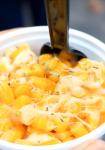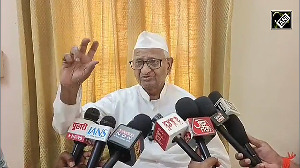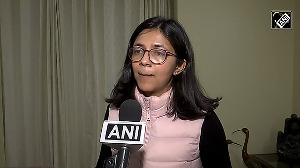In a scathing op-ed in the Los Angeles Times, Levy notes that the arrests of senior Al Qaeda activists in Pakistan coincided with 'the political needs of the US president.'
For instance, 'the Pakistani special forces squad arrested Khalid Shaikh Mohammed, Al Qaeda's third in command, on March 1, 2003, a few hours before informing the Americans that Pakistan would not back a resolution in favor of the war in Iraq,' says Levy.
'They arrested Yasser Jazeeri, another key Al Qaeda operative, in March 2003, a few months before Pakistani President Pervez Musharraf visited Camp David, where he was promised foreign aid to the unprecedented tune of $3 billion.'
'In March 2002, they collared Abu Zubeida, Al Qaeda operations chief, and they did this during a big U.S. congressional debate on the question of foreign aid to Pakistan, as well as on delivering the F-16 fighter jets that had been held back by the Pentagon because of Pakistan's nuclear ambitions. (The delivery of the jets was even more hotly debated because it was at the top of the list of demands made by Daniel Pearl's kidnappers.)' he adds.
The Pakistanis 'chose the first anniversary of the destruction of the twin towers in Manhattan to announce the arrest of Ramzi Binalshib one of the conceivers and coordinators of the 9/11 attacks in a residential neighborhood in Karachi where he had been living almost openly,' says Levy in the article, which was translated from French by Charlotte Mandell.
'And now it's Abu Faraj Farj, also known as Abu Faraj Libbi, another high Al Qaeda commander.'
' He (Libbi) was captured under mysterious circumstances, but at a time charged with meaning. It is the moment, according to the Pakistani media, when the Americans have decided to make delivery of the F-16s contingent on American agents getting the right to interrogate Abdul Qadeer Khan, father of the Islamist bomb and godfather of a whole network of nuclear weapons trafficking that involves Iran, North Korea and, perhaps, Al Qaeda's laboratories near Kandahar, Afghanistan,' he says.
Yet 'Musharraf stubbornly continues to deny the US the right to take over the investigation into what is becoming the most enormous nuclear terrorism affair of this era. Pakistan instead hands over another Al Qaeda operative,' says the author of War, Evil and the End of History (Melville Press 2004) and Who Killed Daniel Pearl? (Gerald Duckworth and Co Ltd 2003), among other books.
While 'in each case, we can find a reason for this series of coincidences between the lightning-raid operations of the Pakistani armed forces and the political needs of the US president I can't get it out of my mind that we have, even more than coincidences, a recurrence, or a law, or even something that looks a lot like a test of strength between the two countries,' he says.
According to Levy, it seems 'as if the Pakistani powers that be have had, ever since Al Qaeda's retreat from Afghanistan and their withdrawal into Karachi, Lahore and Rawalpindi, a precise idea of where the chiefs of Al Qaeda could be found. It is as if Pakistan's formidable intelligence service, the ISI, had not only localized but kept these public enemies of the US and theoretically of Pakistan under observation, handy for periodic culling.'
'It is as if these people were bargaining chips, with the Pakistanis drawing from their reserves of terrorists and cashing them in one by one, depending on the needs of their relationship with the great American "friend," he continues.
While 'optimists will be delighted to learn that there is a country where people know a little about the hiding places of Osama bin Laden's lieutenants, as well as about Bin Laden himself, perhaps, pessimists, however, will remember that before giving asylum to the Taliban, the Pakistanis invented them, ruled Afghanistan through them and, in the space of 20 years, contributed no fewer than 200,000 recruits to the international jihad and pessimists will be worried about this fresh indication of Pakistani double-dealing,' he says.
'For my part, I know where I stand. Having had the chance, during my investigations into journalist Daniel Pearl's murder, to observe close up the nature of the ties between the ISI and a number of Islamist groups, such as the Jaish-e-Muhammad and the Lashkar-e-Taiba, linked to the "sacred" cause of Kashmir, I don't have many illusions as to the sincerity of the Islamabad leaders when they present themselves as the best students in the anti-terrorist class,' he continues.
'I just hope that Secretary of State Condoleezza Rice doesn't have any more illusions than I have, and that when she thanks the Pakistanis for "the difficult work they've done," she knows that she's trifling with us, and she knows what she's doing,' he says.
'I hope that when, in order to break the "axis of evil," the Americans ally themselves with one of the regimes that has at its disposal both weapons of mass destruction and the ideology capable of putting them into action, they are fully aware that they're playing with fire.'
'And that they're playing the craziest, most paradoxical and if they're not careful most dangerous diplomatic poker game in contemporary history,' he concludes.






 © 2025
© 2025